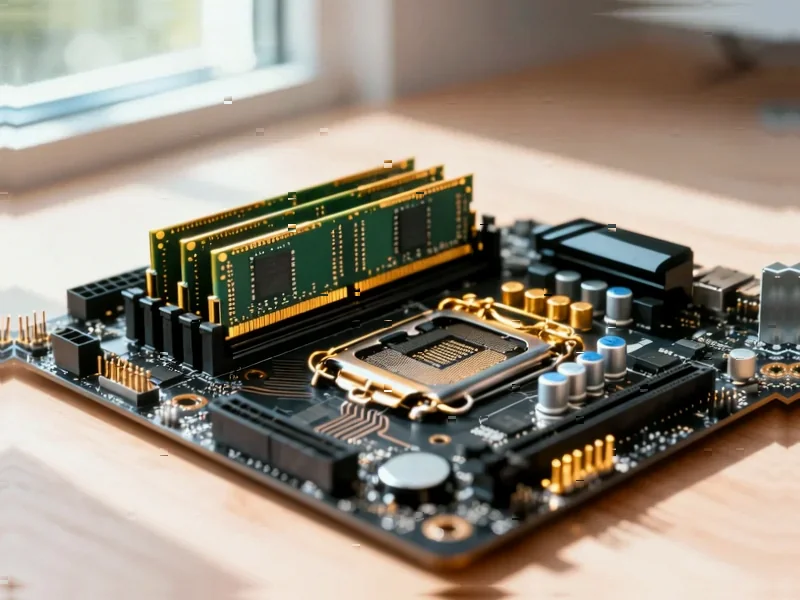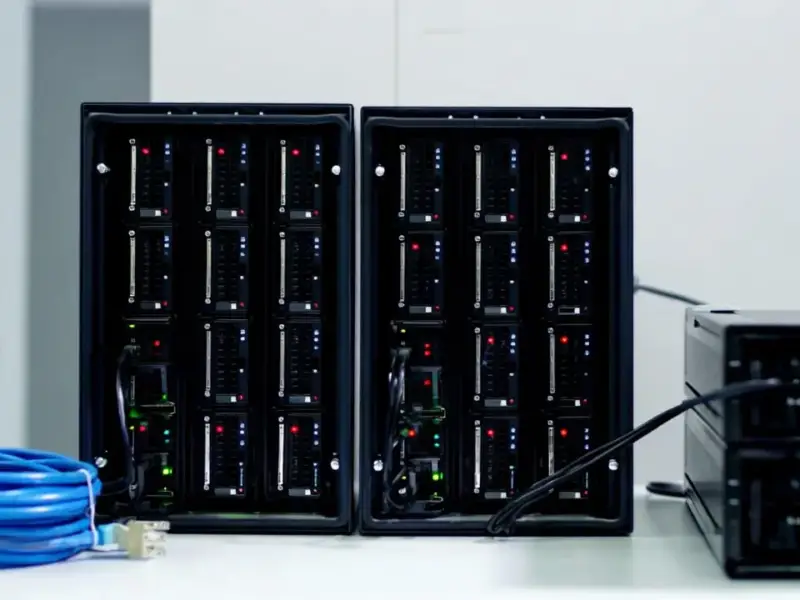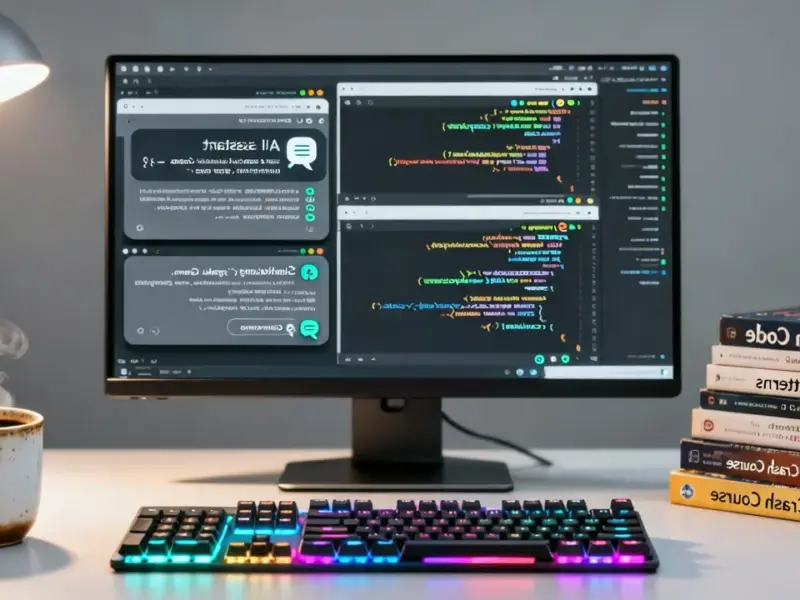According to Wccftech, Chinese PC case manufacturer Abee has launched its first mini PC called the AI Station 395 Max. The system features AMD’s flagship Ryzen AI Max+ 395 processor with 16 cores and 32 threads based on Zen 5 architecture. It comes with an enormous 128 GB of LPDDR5X memory running at 8000 MT/s and includes 2 TB of SSD storage. The cube-shaped device measures 199x199x199mm and uses water cooling for thermal management. Power comes from a built-in 400W supply using a 10-pin ATX12VO design that claims 27% lower idle power consumption. The mini PC is priced at $2,524 and includes dual LAN ports with 2.5G and 10G options plus multiple USB4 and Type-A ports.
Mini PC Market Shakeup
Here’s the thing – Abee is primarily known for making PC cases and fans, not complete systems. So this move into fully-built mini PCs is pretty significant. They’re leveraging their chassis design expertise to create something that stands out in a crowded market. And with that water-cooled design in a compact cube, they’re definitely making a statement.
But let’s talk about that price. $2,524 isn’t exactly impulse purchase territory. This isn’t competing with those sub-$500 mini PCs you see everywhere. They’re clearly targeting professionals who need serious compute power in a small footprint. Think AI developers, content creators, engineers – people who would otherwise be looking at much larger workstations.
Who Actually Needs This?
128GB of RAM in a mini PC? That’s just insane for most users. Basically, if you have to ask whether you need this much memory, you probably don’t. But for AI workloads and memory-intensive applications, that fast LPDDR5X at 8000 MT/s could be a game-changer.
The Ryzen AI Max+ 395 with its RDNA 3.5-based graphics is interesting too. It’s not just about CPU power – that integrated GPU is capable enough for both AI acceleration and decent gaming performance. So you’re getting a system that can handle professional workloads during the day and game reasonably well at night.
Thermal Design Matters
Water cooling in a mini PC isn’t exactly common, and that’s where Abee’s case manufacturing experience really shows. Keeping a 16-core Zen 5 chip cool in such a small enclosure is no small feat. Thermal throttling has been the Achilles heel of many powerful mini PCs, so if Abee has solved that problem, they might have a real winner.
The 10G LAN port is another professional touch that sets this apart from consumer-grade mini PCs. Combined with all that memory and fast storage, this could serve as a compact development station or even a small server for certain workloads. It’s basically a datacenter in a cube.
Competitive Landscape
Now, where does this leave companies like Intel NUC, Minisforum, and other mini PC specialists? Honestly, they’re probably not sweating too much yet. This is a premium product at a premium price point. But it does show that there’s room for innovation in the high-end mini PC space.
The real question is whether professionals will trust a relatively unknown brand for their critical workloads. Abee’s reputation in the case market might help, but building complete systems is a different ballgame. They’ll need to prove reliability and support capabilities to win over that professional audience.
Still, it’s exciting to see new players bringing fresh ideas to the market. And with AI workloads becoming more common, having powerful, compact systems like this could become increasingly important for developers and researchers working outside traditional data centers.




